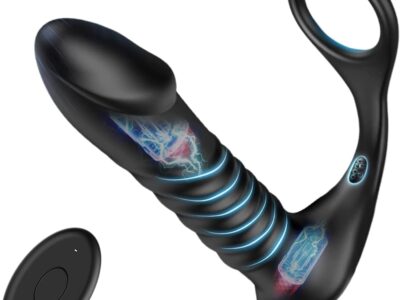Enlarged prostate, also known as benign prostatic hyperplasia (BPH), is a common condition that affects men as they age. The prostate gland, located beneath the bladder, surrounds the urethra and is responsible for producing seminal fluid that carries sperm during ejaculation. When the prostate gland becomes enlarged, it can press against the urethra and cause a variety of urinary symptoms including erectile dysfunction.
Erectile dysfunction is a condition in which men are unable to achieve or maintain an erection for sexual intercourse. Though it can be treated with the help of medicines like Fildena 150 mg and Cenforce 150mg, the first thing you must do is treat your enlarged prostrate.
Causes of Enlarged Prostate
The exact cause of an enlarged prostate is not known, but it is believed to be related to hormonal changes that occur as men age. Specifically, the male hormone testosterone is converted into dihydrotestosterone (DHT), which stimulates the growth of prostate cells. As a result, the prostate gland can become enlarged over time, leading to urinary symptoms.
Symptoms of Enlarged Prostate
The symptoms of an enlarged prostate can vary from mild to severe, and may include:
- Frequent urination, especially at night
- Difficulty starting urination
- Weak urine stream
- Dribbling after urination
- Inability to empty the bladder completely
- Urinary tract infections
In addition to urinary symptoms, an enlarged prostate can also affect sexual function. Men with BPH may experience erectile dysfunction, which can make it difficult to achieve or maintain an erection during sexual activity. This is because the enlarged prostate can restrict blood flow to the penis, which is necessary for achieving an erection.
Treatment Options for Enlarged Prostate
There are several treatment options available for an enlarged prostate, depending on the severity of symptoms and other factors. These include:
Medications: Certain medications can help relieve the symptoms of an enlarged prostate, such as alpha-blockers, which relax the muscles around the prostate gland and urethra to improve urine flow, and 5-alpha reductase inhibitors, which can reduce the size of the prostate gland over time.
Minimally Invasive Procedures: For more severe cases, minimally invasive procedures such as transurethral resection of the prostate (TURP) or laser therapy may be recommended. These procedures involve removing part of the prostate gland to improve urine flow.
Surgery: In rare cases, surgery may be necessary to remove the entire prostate gland. This is usually only recommended if other treatments have been ineffective or if the prostate gland is severely enlarged.
How to Prevent Enlarged Prostate?
While there is no guaranteed way to prevent an enlarged prostate, there are several lifestyle changes that may help reduce the risk or delay the onset of symptoms. These include:
- Maintaining a healthy weight
- Exercising regularly
- Eating a balanced diet high in fruits, vegetables, and whole grains
- Limiting alcohol and caffeine intake
- Avoiding medications that can exacerbate urinary symptoms, such as decongestants and antihistamines
Enlarged prostate is a common condition that can cause a variety of urinary symptoms and affect sexual function in men. While it cannot always be prevented, there are several treatment options available to help manage symptoms and improve quality of life. It is important to talk to a healthcare provider if you experience any urinary or sexual symptoms to determine the best course of treatment. The doctor may prescribe you medicines like Fildena Super Active and Cenforce D to help you enjoy sexual activity.













Comments